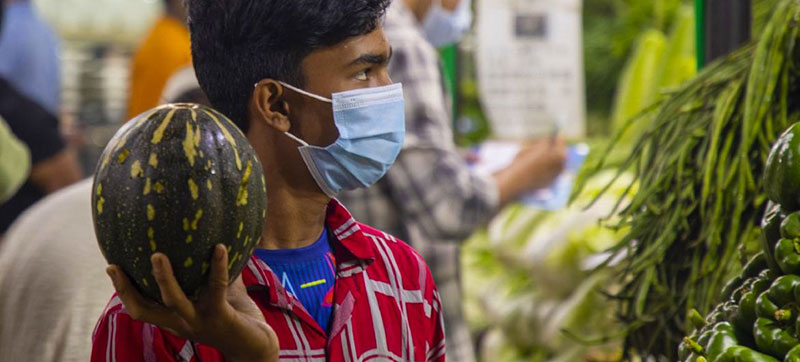 COVID-19 Poverty
COVID-19 Poverty COVID-19 leads to over 50 million more hungry people in Asia-Pacific
New York: COVID-19 led to rising food insecurity for around 54 million people living in the vast Asia-Pacific region during 2020, according to a joint UN agency report published on Wednesday.
The Food and Agriculture Organization (FAO), and UN Children’s Fund (UNICEF)’s 2021 Asia and the Pacific Regional Overview of Food Security and Nutrition also pointed out that as hunger increased, so too did access to sufficiently nutritious food.
Overall, more than 375 million in the region faced hunger during 2020, up from around 321 million in 2019.
Both agencies said that high levels of poverty continue to hold healthy diets out of reach for 1.8 billion people, while more than one billion did not have access to adequate food in 2020 – an increase of almost 150 billion in just 12 months.
Hunger and poor nutrition levels in Asia and the Pacific in 2019 were already concerning, but the pandemic has made this drastically worse, UNICEF and FAO insisted, before adding that even countries that had initially reported a limited number of COVID-19 cases had suffered the negative effects of containment measures.
COVID affect
In recent years, progress has stalled in reducing the number of undernourished, as witnessed in children under age five – more of whom are experiencing stunting.
And the coronavirus crisis has exacerbated that negative trend.
“While it is not yet possible to fully quantify the impact of the COVID-19 pandemic in 2020, clearly it has had a serious impact across the region”, FAO Assistant Director General and Regional Representative Jong-Jin Kim and UNICEF acting Regional Director for East Asia and the Pacific Marcoluigi Corsi said in the foreword.
“Even countries that initially reported a limited number of COVID-19 cases experienced the negative effects of the containment measures, combined with people’s health concerns, that led to a major contraction of economic activity around the globe”.
Since then, the situation has worsened as disruption to food supply chains added to the problems.
Looking ahead
As bad as it is, the situation could have been even worse without the social protection measures put in place by Governments during the crisis.
“In building back better, future agri-food systems will have to provide better production, better nutrition, a better environment and better livelihoods”, the FAO and UNICEF Directors said.
To do that, the UN agencies stressed that the needs of small-scale, family farmers and indigenous people in the region must be met.
Food systems must also prioritize the dietary needs of vulnerable groups, including young children and women.
Stepping up
“This year there are opportunities to begin the hard work of advancing food security and nutrition through transforming agri-food systems”, said the UN agency officials.
Pledges made at the 2021 UN Climate Change Conference (COP26), UN Food Systems Summit, and Nutrition for Growth Summit – during which FAO, the World Health Organization (WHO) and World Food Programme (WFP) explained how countries can promote more nutritious, desirable, context-appropriate school food that is sustainably produced – must be implemented.
“We must leverage the commitments made during these events to meet the second Sustainable Development Goal (SDG2) and eradicate food insecurity and malnutrition”, they concluded.
Support Our Journalism
We cannot do without you.. your contribution supports unbiased journalism
IBNS is not driven by any ism- not wokeism, not racism, not skewed secularism, not hyper right-wing or left liberal ideals, nor by any hardline religious beliefs or hyper nationalism. We want to serve you good old objective news, as they are. We do not judge or preach. We let people decide for themselves. We only try to present factual and well-sourced news.







